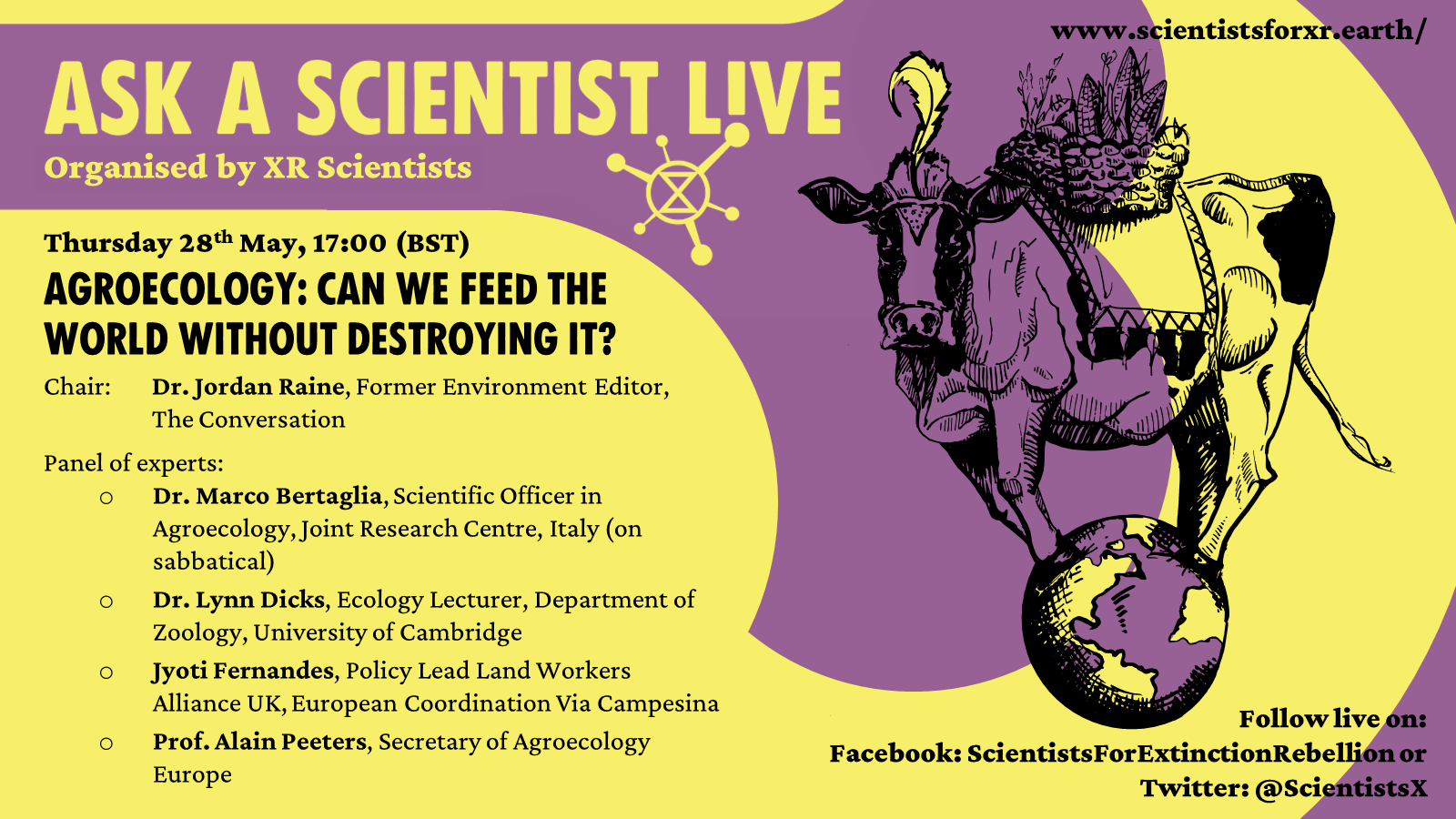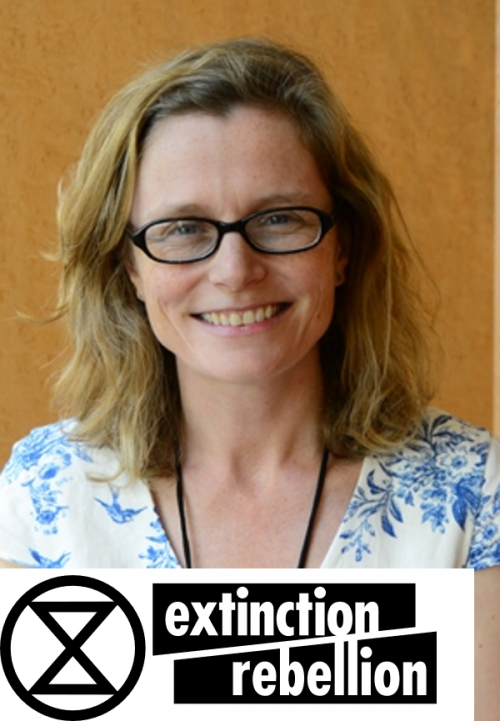SUFICA’s project leader Lynn at Ask A Scientist with Extinction Rebellion
Agroecology: can we feed the world without destroying it?
Lynn Dicks, one of the project leaders for SUFICA, has recently featured at Ask A Scientist by Extinction Rebellion. Ask A Scientist is a series of online events, which gives the opportunity for the public to ask scientists questions. In May alongside three other scientists, Lynn explained why we must put a stop to agricultural expansion and discussed the solutions to feeding ourselves without the devastating impacts on the planet.
What is the problem?
-
40% of world’s land is used for agriculture
-
Agriculture is the leading driver of biodiversity loss
-
A quarter of all assessed species are threatened with extinction
-
Agricultural production systems are responsible for up to 37% of all greenhouse gas emissions
-
A billion people are still facing food insecurity daily

Credit: Extinction Rebellion
What is the solution – can we feed ourselves without destroying the planet?
A panel of the four scientists took turns to answer questions about the role of agroecology in securing the future for global food security and biodiversity.
Lynn discussed the three steps necessary to achieve this:
-
We must stop further agricultural expansion. There is no other option to stopping further biodiversity loss due to agriculture without halting habitat loss.
-
We must reclaim natural habitats and give biodiversity a home again.
-
This can only be achieved through agricultural intensification which would allow sufficient food to be produced on a smaller amount of land. This must happen in a way that doesn’t rely on artificial inputs which are known to have devastating impacts on biodiversity and the environment.
This is where we turn to ecology and systems and interactions that have evolved over millions of years to become resilient to change.
“Agroecology is about trying to recreate [the stable complex webs] in a farming environment”
Lynn spoke of the role that biodiversity has within agricultural systems, explaining that a large diversity of different species, each with individual functions, exist in complex interacting webs that are very stable and this achieves stable systems.
However, it is important to appreciate that a shift in how agricultural production systems are managed is not going to happen overnight and requires a lot of research.
“[This] is very knowledge intensive and it’s extremely different, very very very different from the conventional approach to farming that we have in large parts of the world today.”
Here at SUFICA, we are working very closely with farmers to try to recreate some of the natural interactions of species within farms that would benefit production through biological pest control or pollination, for example. We are doing this to inform ecological intensification in an evidence-based approach.
Ask A Scientist is a brilliant way of engaging the public. Extinction Rebellion have run three events like this on different topics (and are planning to run more), and this latest episode on Agroecology was viewed over 21.3k times across various media channels within just 9 days.
You can watch the latest full event featuring Lynn Dicks here:
Extinction Rebellion is a global environmental movement with the aim to compel government actions to stop further climate change, biodiversity loss and the associated risks of social and ecological collapse.
To keep up to date with other similar Extinction Rebellion events, follow them on Twitter and check out this website.
Natalia Zielonka
15.06.20


